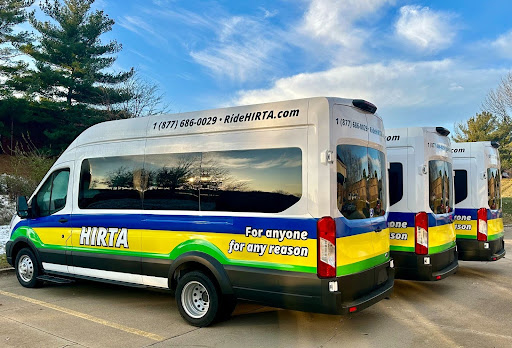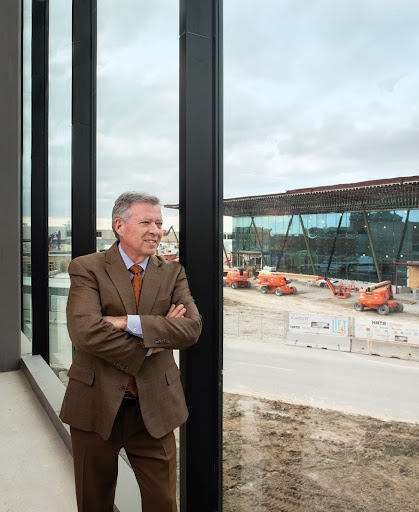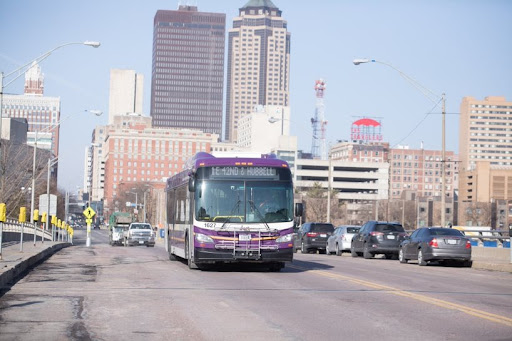NASCO event gives Des Moines chance to shine

He needed three languages to get through it, but Polk County Supervisor Robert Brownell made it through the opening remarks.
Brownell used the familiar English language to give the opening remarks at the North American SuperCorridor Coalition Inc. (NASCO) conference in Des Moines, then promptly navigated his way through the remarks again in French and Spanish.
The conference, which was held for the first time in Des Moines, was a chance for both policy-makers and businesses from the United States, Mexico and Canada to engage one another on pressing transportation, trade and economic development issues along the Interstate 35 corridor that links the three trade partners.
One thing event planners had hoped to do was involve the private sector more than had been done at previous conferences. Brownell said he was overwhelmed by the number of business people who wanted to participate in the conference.
“What really struck me about this conference, and I’ve been to three of these before, but the number of questions asked to the panels up to this point has been a total of zero,” he said. “Nobody asks questions at these conferences, because mostly what we have in front of them is a table full of bureaucrats talking about all the good things they are doing.”
By contrast, Brownell said, at almost all of this year’s panels, the question-and-answer sessions had to be cut short because of the volume of questions.
“We had people up in front that actually had real-world experience in trying to move their goods across the border, or trying to sell internationally or market their products internationally,” he said. “We were really hoping for that kind of a result by focusing on the private sector, and apparently it worked.”
For Tom Kane, executive director of the Des Moines Area Metropolitan Planning Organization (MPO), the conference was important because he felt it played a role in helping open the eyes of the American public.
He said that contrary to common belief, Canada is our No. 1 trading partner and Mexico is No. 2. Some groups in the United States – including a small group that protested at one of the NASCO social events – are not in favor of the North American Free Trade Agreement (NAFTA), and that’s why having a conference to open eyes in the middle of the heartland was important, Kane said.
“The big issue for us in the United States and in Iowa is getting people to understand the already existing relationships among the three countries and how do we work together to make ourselves more competitive in this world market,” he said.
The transportation and trade conference was also beneficial for the MPO, Kane said, because the organization is in the process of analyzing the possibility of creating an intermodal freight facility in Des Moines (See MPO Notebook on Page 12).
Brownell said one of the biggest benefits Polk County and other government officials got out of the conference was being able to hear representatives from the private sector talk about their challenges.
“You know government workers and bureaucrats get into their little silos, and we get to talking to ourselves, and the next thing you know everything is going fine,” Brownell said. “I’m not saying that the sky is falling at all, but there are challenges and there are things out there that we can do better as a government.”
Ken Allen, president of the agricultural group for Bridgestone America’s tire operations, was thankful the conference did an excellent job catering to private businesses. Allen, who participated in one of the conference panels, said the biggest benefit for Bridgestone was the visibility of the tire exporter to the private sector and to the public sector.
Allen said even before the conference he had been working with the MPO to address what Bridgestone feels is a need for an intermodal freight facility. Mexico and Canada are the company’s largest export destinations, and a facility here would help eliminate the need to ferry goods to hubs in Chicago, Omaha and Kansas City. The conference, he said, helped give Bridgestone a voice.
It’s definitely in the best interest of Des Moines International Airport for private businesses in the area to benefit from NASCO’s efforts, said Roy Criss, the airport’s air service and public relations manager. Criss said the airport is supportive of NASCO’s mission because more trade along the I-35 corridor ultimately means more air cargo for the airport.
“If NASCO is successful with all of these representatives from all these three countries and the flow of goods increases coming through there, I mean Des Moines sits just smack dab in the middle of that corridor, and it can’t help but be good for this entire community and the entire state,” Criss said.
Brownell and Kane both said that having the event in Des Moines was also a good opportunity to showcase the city to officials from Mexico and Canada as well as other parts of the United States. Brownell said all the participants raved about what Des Moines had to offer, and he feels it’s important for the country to know Des Moines has a good thing going.
“We don’t need to be arrogant about it, but we need to be aware of it that we kind of work our Midwestern inferiority complex into our personas a little too much,” he said. “And the reality is, it is a really nice place.”
And a place businesses like Bridgestone want to help keep being shown in a positive light. Allen said the conference was critically important to businesses in Des Moines.
“There are so many intangibles to talk about at events like this, and one for us as an employer and as part of a global enterprise is to be able to attract other teammates from around the nation and around the world to Des Moines,” he said.










